detail profile filip c5 a0ovagovi c4 87
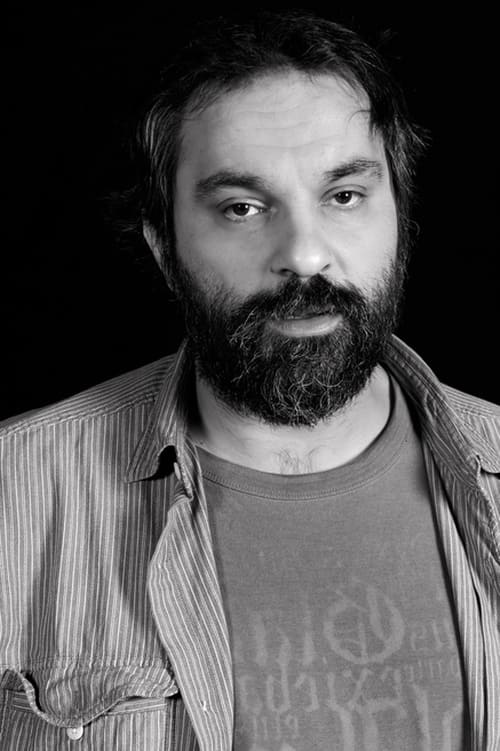
Riwayat Hidup
Filip Šovagović (born September 13, 1966 in Zagreb, SR Croatia, SFR Yugoslavia) is a Croatian actor, playwright and journalist.
At first known simply as the son of renowned Croatian actor Fabijan Šovagović borned in Ladimirevci, Filip Šovagović has appeared in many films and TV shows in the last decade and a half, gradually building a reputation of his own.
His films include No Man's Land, Oscar winner, and in 2005 he made his directorial début with the film Pušća Bistra.
Šovagović is author of five plays, one of them, "The Brick", won the most important European radio award, Grand Prix of Italia.
He writes a column in the Croatian daily newspaper 24 sata.
His sister Anja Šovagović-Despot is also a renowned actress.
Info Pribadi
Peran Yang Di Mainkan Filip Šovagović
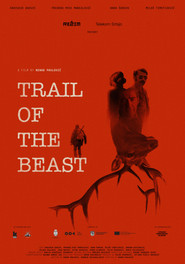 An aspiring journalist in Communist Yugoslavia...
An aspiring journalist in Communist Yugoslavia...Trail of the Beast 2022
An aspiring journalist in Communist Yugoslavia, sets out on a journey to investigate a brutal murder in rural countryside.
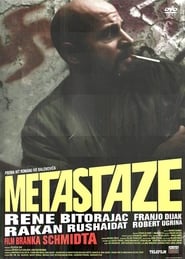 Eliciting images of cancer this drama...
Eliciting images of cancer this drama...Metastases 2009
Eliciting images of cancer, this drama explores the illnesses that plague modern Croatia. Four young junkies in Zagreb maturing in the wake of war reflect the petty hatreds, violence, prejudices and mood hanging over the country like a disease that spreads with no cure in sight.
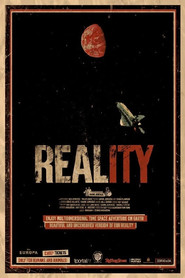 The destiny unites two homeless men...
The destiny unites two homeless men...Reality 2008
The destiny unites two homeless men in the S.O.S. canteen. A failed actor and lost poet begin telling each other the key events from their lives. After an extraordinary twist we become aware that the two men are popular and will participate in a film experiment on the Moon.
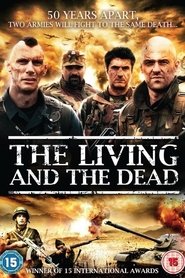 In 1943 group of Croatian soldiers overtake...
In 1943 group of Croatian soldiers overtake...The Living and the Dead 2007
In 1943, group of Croatian soldiers overtake a strategically important point in western Bosnia with a goal to destroy a group of communist partisans. On the way they met some supernatural phenomena, and the action itself went very badly because the partisans ambushed them. The main character Martin inherits silver cigarette case from a dying soldier. This act connects to the story in 1993 when we meet Martins grandson Tomo. He is one of six soldiers of the Croatian army who have come to the same place in Bosnia to meet the same phenomena and similar fate.
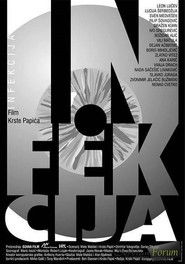 In a fictional Central European country...
In a fictional Central European country...Infection 2003
In a fictional Central European country democracy and freedom are only illusion, because behind polished surface there's many cases of murders and manipulations with the people. Police and city authorities are helpless when it comes to revealing the evil and culprits behind it. In the center of this story is the writer Ivan Gajski, whose friend died under sketchy circumstances. Gajski reveals that those who most advocate democracy are not only the same involved in these crimes, but they also did some of the murders as a part of TV production. Gajski meets all kinds of characters through this quest of his, including the woman of his wife Sara, and professor Bošković who discovers the origins of present Evil - the dark past of European continent.
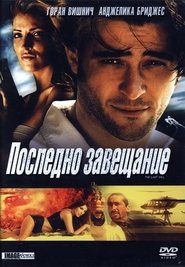 After the death of a wealthy...
After the death of a wealthy...The Last Will 2001
After the death of a wealthy Croatian emigrant, it is discovered that he left his fortune to an unknown, illegitimate relative back in Croatia.
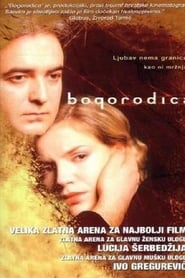 In a small Croatian village in 1991...
In a small Croatian village in 1991...Madonna 1999
In a small Croatian village in 1991, a carpenter Kuzma falls for much younger Ana. In spite of their surroundings' opposition towards their relationship, the couple marries and Ana gives birth to their son. Being also familiar with the statuary, he makes a sculpture of Madonna for the local church. A quiet life of the village is disturbed when the first clashes between Croats and Serbs arise.
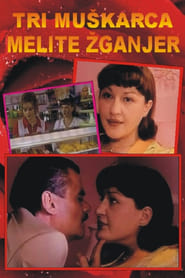 Protagonist of the film is Melita...
Protagonist of the film is Melita...The Three Men of Melita Zganjer 1998
Protagonist of the film is Melita Zganjer, woman who desperately tries to lose weight. This proves to be very difficult because she works in a pastry shop. Unlike her man-eating roommate Visnja, she only dreams about love and spends all her free time watching South American soap opera "Slave of Love". The man of his dreams is much closer than she thinks, though. Janko, young man who delivers pastry, loves Melita but is too shy to express his feelings. In the meantime, Eva, policewoman and another of Melita's roommates, tries to set her up with one of her colleagues. Those efforts fail, but Melita's dreams seems to come true with Antonio Mulero, "Slave of Love" star who arrived to Zagreb to shoot a feature film.
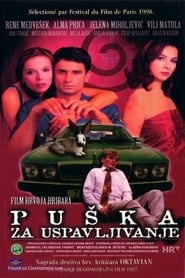 Janko a police officerveteran of the...
Janko a police officerveteran of the...A Rifle for Sleeping 1997
Janko, a police officer/veteran of the war, who is suffering from insomnia caused by post-traumatic stress disorder, now works as a guard in front of the Russian embassy in Zagreb. Having abandoned his former paramour, the daughter of his police chief, he marries a kleptomaniacal hairdresser named Nana, whom he once caught in the act of picking pockets. He then embarks on an affair with the beautiful Marta, the widow of the war profiteer Dragutin Karlo Stajner, who has left behind him a bankrupted firm, a worthless limousine, several bastards, and at least one angry woman. While Janko and Marta persistently try to divvy up what loot remains before any number of others can claim it, Karlo unexpectedly turns up alive and jumps into the middle of a fray between Marta; Karlo's lover, Julija, a Czech bar-singer; and Julija's husband Vlado, a former henchman of Karlo's who is now trying to lay claim to Stajner's limo.
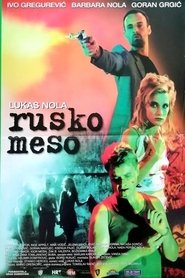 Determined to find her sisters killers...
Determined to find her sisters killers...Russian Meat 1997
Determined to find her sister's killers, Ida Palamar decides to become a prostitute in an elite Zagreb brothel where the murder probably took place. The brothel is run by Vuk, violent and drug-crazed arms smuggler, protected by the police. Ida's only ally in her quest is a young bouncer.
 A young Croatian painter Josip Rai...
A young Croatian painter Josip Rai...Pont Neuf 1997
A young Croatian painter Josip Račić in the solitude of a Parisian attic encounters unusual people and falls in love with a cabaret singer. The ambience of the cheap Parisian hotel mixes in the painter's mind with memories of his childhood and youth in the Slavonian plain, all these things finding their expression in his paintings that start to attract the attention of experts...
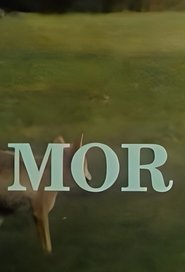 Sue the only daughter of a...
Sue the only daughter of a...Mor 1992
Sue, the only daughter of a squire comes back from a fashionable European resort where she spent vacation. Arno, an impoverished nobleman wins her heart and they soon get engaged. But in the farm is the manager's son named Mor whom Sue spent her childhood with. Their reunion flare up old emotions, but soon strange things begin to happen. The stories about a werewolf start to circle around.
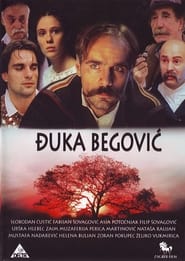 After spending 13 years in prison fortyyearold...
After spending 13 years in prison fortyyearold...Djuka Begovic 1991
After spending 13 years in prison, forty-year-old Djuka Begovic returns to his home-village in Slavonia. He promises to his mother that he will begin a new and honest life. He finds new meaning in taking care of his daughter Smilja. He tries to chase away destructive thoughts that threaten to overwhelm him by throwing himself into hard work. However, everything around him reminds him of his past and his family's tragic destiny. His family was wealthy at the beginning of the twentieth century, but was destroyed by the capitalist powers that took over the villages and broke the traditional family cooperatives. Djuka's personal life was marked by constant conflicts with his father.
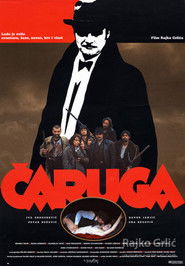 This film is based on the...
This film is based on the...Charuga 1991
This film is based on the true story about Jovan Stanisavljevic alias Charuga, the bandit who became a legend in post-WW1 Slavonia, Croatia.
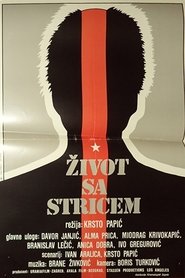 In this politically charged drama the...
In this politically charged drama the...My Uncle's Legacy 1988
In this politically charged drama, the turbulent times just following Marshal Tito's rejection of ties to Moscow comes to life. Interestingly, even in the first few years after the Yugoslavian leader's death, the subject matter of this film was considered too hot to handle, and the director had to appeal to the courts for permission to shoot it. In the story, Martin is a schoolboy with a sense of the absurd and a willingness to use ridicule to amuse himself and his classmates. He has an uncle who is high up in the nation's bureaucracy who protects him and his grandfather now that his father has died. His grandfather is too stubborn to give his farm to the local farming collective, and Martin himself is in hot water with the principal for making fun of his girlfriend, one of the students at the high school. However, as long as the uncle is able to protect them, they remain out of hot water.
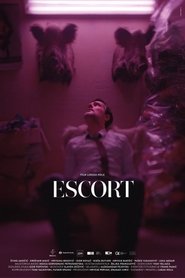 For the first time in his...
For the first time in his... Life Is a Trumpet has a...
Life Is a Trumpet has a...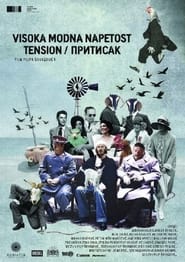 A small village on an island...
A small village on an island...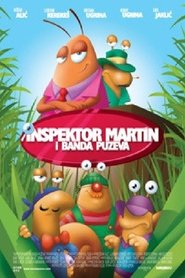 Famous inspector Martin looses his secret...
Famous inspector Martin looses his secret...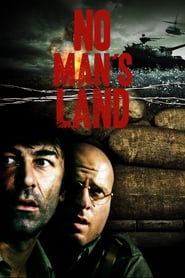 Two soldiers from opposite sides get...
Two soldiers from opposite sides get...